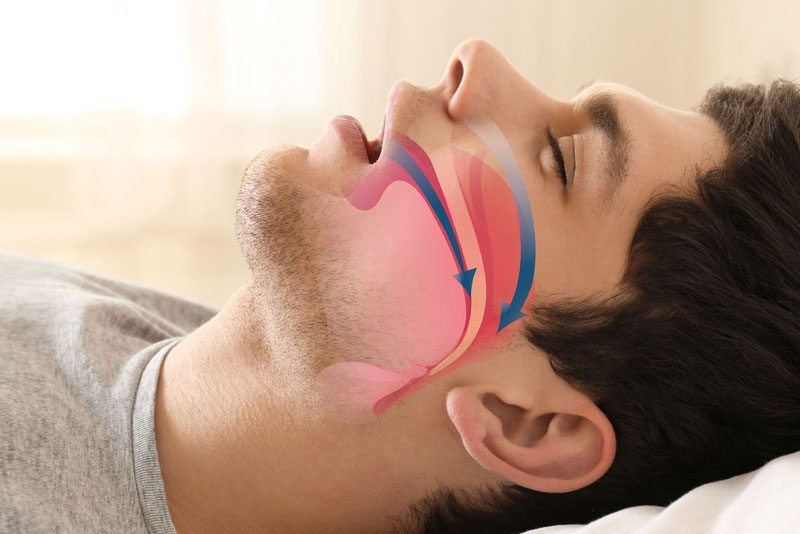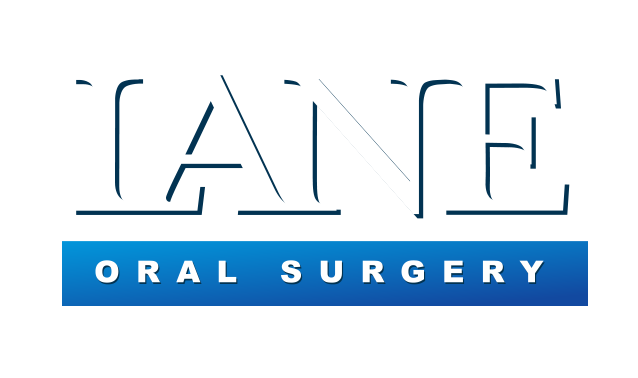If you’ve been diagnosed with obstructive sleep apnea, you are most likely aware of the debilitating consequences of this condition. Poor sleep, loud snoring, daytime fatigue, headaches, poor concentration, mood swings—all these symptoms and more are everyday occurrences for most people suffering from sleep apnea. Thankfully, if your obstructive sleep apnea is a result of mispositioned jaw(s), you can find relief from these symptoms with personalized jaw surgery (orthognathic surgery) from a oral surgeon.

What Is Sleep Apnea?
Sleep apnea is a serious medical condition; affecting your quality of life and your ability to sleep throughout the night. Most dental patients that have sleep apnea symptoms have whats called Obstructive Sleep Apnea (OSA)(2) which is when the airways in the throat become blocked. From loud snoring, insomnia, headaches when waking up, snoring or choking in the middle of the night, to drowsiness, Sleep Apnea can affect every aspect of your life.
AN UNDIAGNOSED PANDEMIC
Did you know that approximately 3/4ths of sleep apnea patients remain undiagnosed and don’t even know that they’re at risk? Are you one of the 9% of Americans that might not even know that you could have sleep apnea (1). If you have symptoms that align with sleep apnea, it’s very important to get it checked up with an oral surgeon when you can!
WHY TREAT SLEEP APNEA?
Obstructive sleep apnea can make it difficult to enjoy an energized and healthy life. But long-term, the consequences of this condition are significantly worse. Sleep apnea increases the risk for or worsens systemic health issues, including obesity, high blood pressure, and diabetes, and can lead to a weakened immune system, memory loss, heart attack, and stroke. For patients with problematic jaw position as the main cause of their sleep apnea, seeking treatment can improve their quality of sleep, oral and physical health, and overall quality of life.
HOW OUR OFFICE TREATS SLEEP APNEA!
Jaw surgery, or jaw advancement surgery, involves repositioning and realigning one or both jaws. While this is primarily completed for functional issues, establishing correct jaw position can improve facial aesthetics, too, especially in the profile where a recessed jaw results in a small chin. During surgery, the lower jaw (and sometimes upper jaw as well) is moved forward, along with the tissues and tongue, to create a larger airway. Moving the jaw forward also significantly reduces the chances of these tissues and the tongue falling back into the narrow airway and partially obstructing (snoring) or completely obstructing the area during sleep. In recent studies, jaw surgery for sleep apnea retained an over 90% success rate!
BENEFITING FROM SLEEP APNEA SURGERY
- More restful, rejuvenating sleep
- Daytime energy and concentration
- Improved cognitive function and mood
- Minimal or eliminated snoring
- Better oral and physical health
- Reduced risk of systemic complications

Schedule Your Consultation
If you’re ready to put the complications and dangers of sleep apnea behind you, William F. Lane, D.M.D. and William M. Lane MD, DMD, MBA, in our office in Plymouth, MA to treat your apnea today by scheduling a consultation. We would love to get a call from you at our new patients number of (508) 273-2213 or if you’re closer to our office in Sandwich, MA, our new patients number there is (508) 591-8605. We’d love to see you there!
Our References
- (1) Sleep Apnea – What it is, its risk factors, its health impacts, and how it can be treated, Sleep Foundation, https://www.sleepfoundation.org/sleep-apnea
- (2) WHAT IS SLEEP APNEA?, American Sleep Apnea Association, https://www.sleepapnea.org/learn/sleep-apnea/



